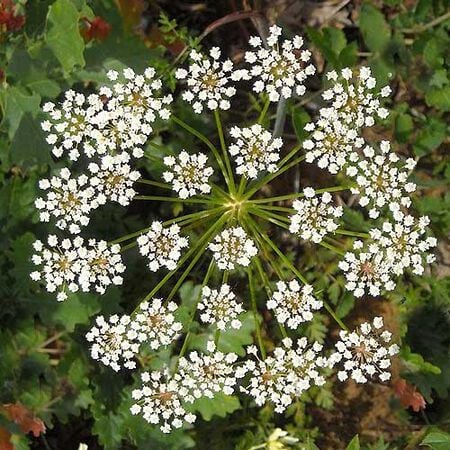Common, Anise Seeds
Key Attributes
Key Attributes
Product Details
Weight
0.001Plant Height
18-24"Botanical Name
Pimpinella anisumSeed Type
SeedSeeds Per Gram
399Seeds Per Pound
180,800Packet
200 SeedsSow Depth
1/4"Seeds Per Ounce
11,300Breed
Open-pollinatedSun
Full SunLife Cycle
Tender PerennialSow Method
Direct SowCategories
HerbGermination
11,12,13,14,8,9,10Days To Maturity (# Days)
130Components
Growing Instructions
Shipping Schedule
Our Seed Promise
 "Agriculture and seeds" provide the basis upon which our lives depend. We must protect this foundation as a safe and genetically stable source for future generations. For the benefit of all farmers, gardeners and consumers who want an alternative, we pledge that we do not knowingly buy or sell genetically engineered seeds or plants.
"Agriculture and seeds" provide the basis upon which our lives depend. We must protect this foundation as a safe and genetically stable source for future generations. For the benefit of all farmers, gardeners and consumers who want an alternative, we pledge that we do not knowingly buy or sell genetically engineered seeds or plants.
The mechanical transfer of genetic material outside of natural reproductive methods and between genera, families or kingdoms, poses great biological risks as well as economic, political, and cultural threats. We feel that genetically engineered varieties have been insufficiently tested prior to public release. More research and testing is necessary to further assess the potential risks of genetically engineered seeds. Further, we wish to support agricultural progress that leads to healthier soils, to genetically diverse agricultural ecosystems, and ultimately to healthy people and communities.
To learn more about the "Safe Seed Pledge" please visit www.councilforresponsiblegenetics.org.

